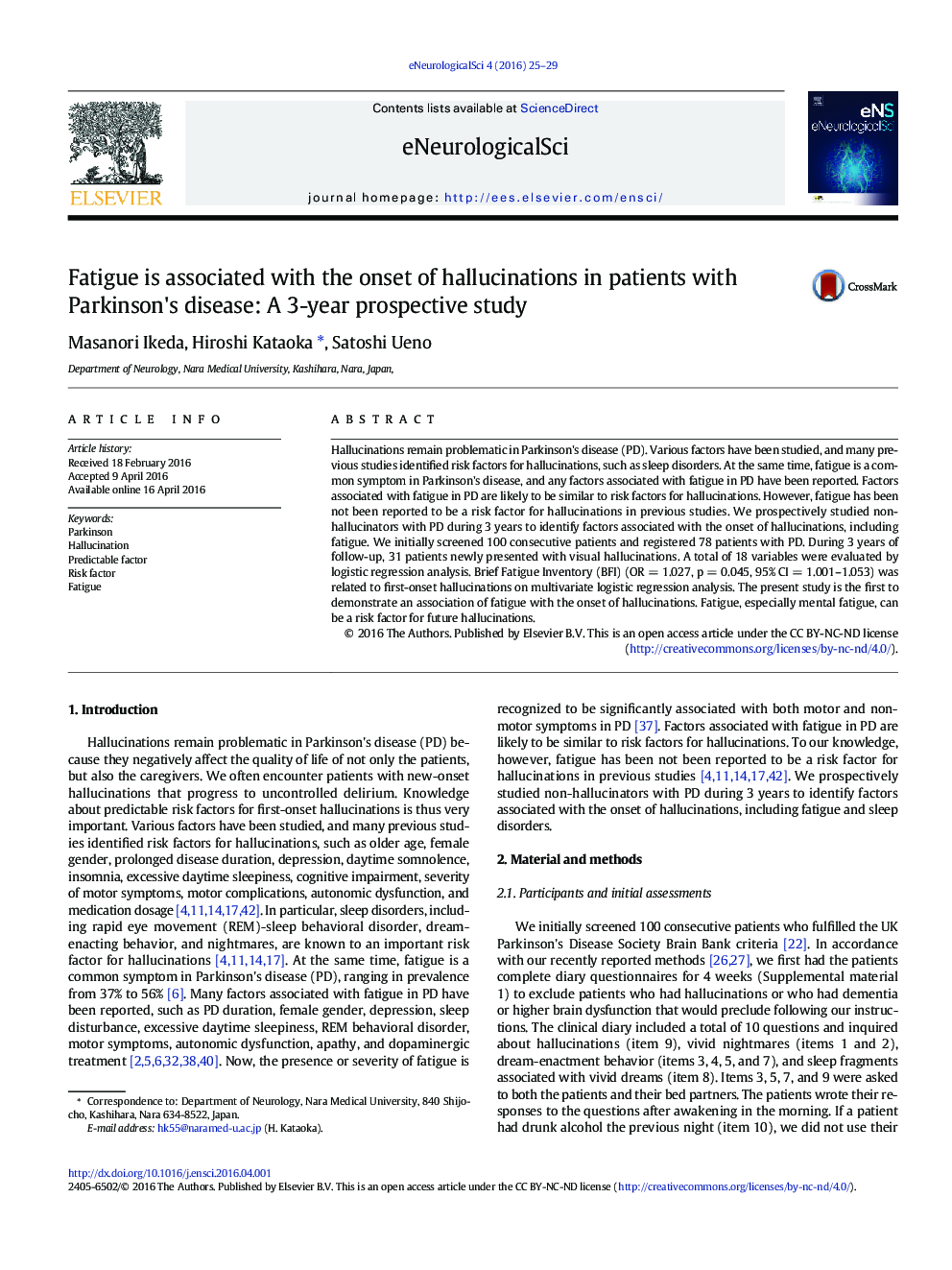| Article ID | Journal | Published Year | Pages | File Type |
|---|---|---|---|---|
| 3049537 | eNeurologicalSci | 2016 | 5 Pages |
•We prospectively studied non-hallucinators with PD during 3 years.•We studied to identify factors associated with the onset of hallucinations.•31 patients newly presented with visual hallucinations.•Our study demonstrate an association of fatigue with the first-onset hallucinations.•Fatigue, especially mental fatigue, can be a risk factor for future hallucinations.
Hallucinations remain problematic in Parkinson's disease (PD). Various factors have been studied, and many previous studies identified risk factors for hallucinations, such as sleep disorders. At the same time, fatigue is a common symptom in Parkinson's disease, and any factors associated with fatigue in PD have been reported. Factors associated with fatigue in PD are likely to be similar to risk factors for hallucinations. However, fatigue has been not been reported to be a risk factor for hallucinations in previous studies. We prospectively studied non-hallucinators with PD during 3 years to identify factors associated with the onset of hallucinations, including fatigue. We initially screened 100 consecutive patients and registered 78 patients with PD. During 3 years of follow-up, 31 patients newly presented with visual hallucinations. A total of 18 variables were evaluated by logistic regression analysis. Brief Fatigue Inventory (BFI) (OR = 1.027, p = 0.045, 95% CI = 1.001–1.053) was related to first-onset hallucinations on multivariate logistic regression analysis. The present study is the first to demonstrate an association of fatigue with the onset of hallucinations. Fatigue, especially mental fatigue, can be a risk factor for future hallucinations.
